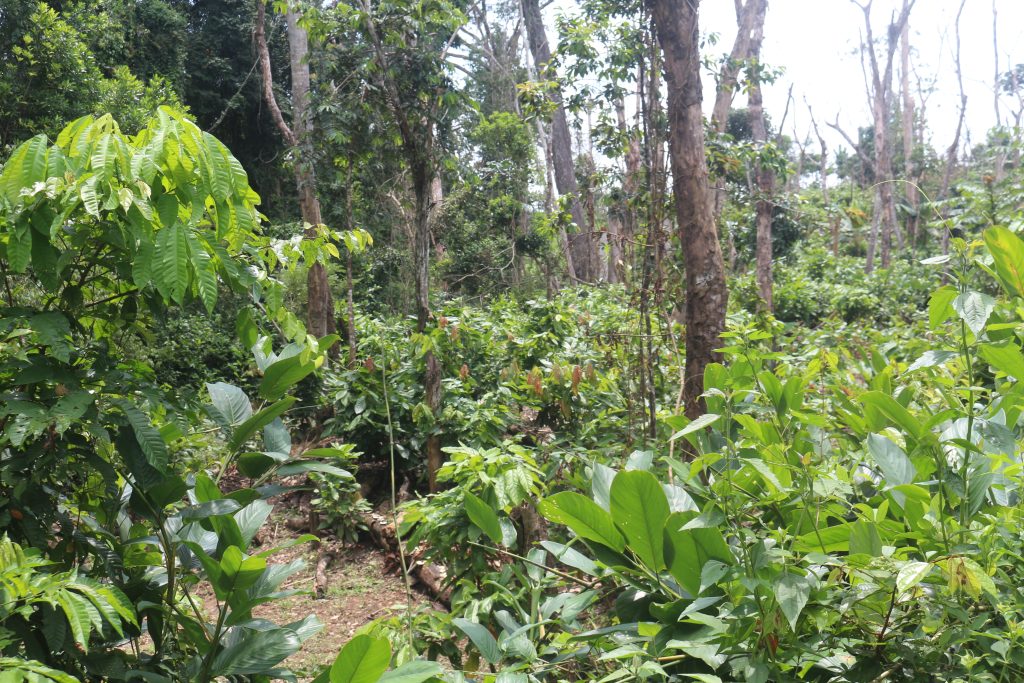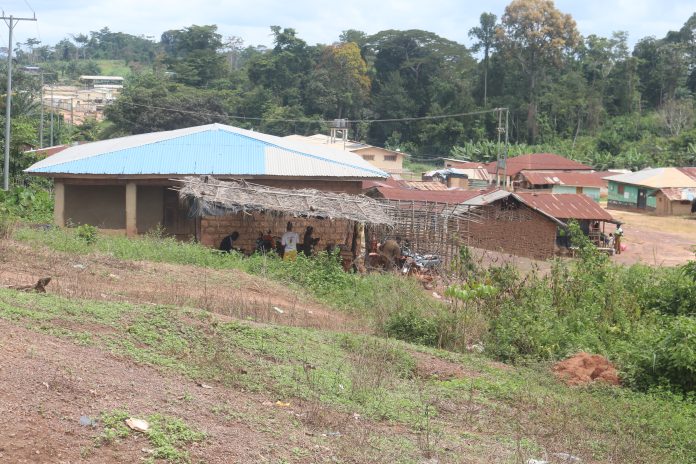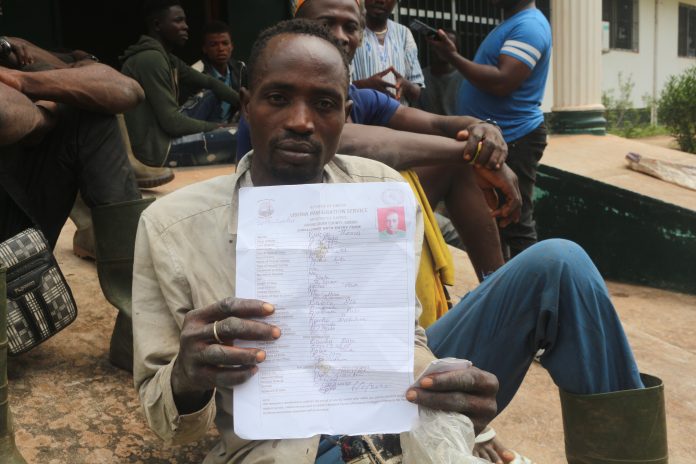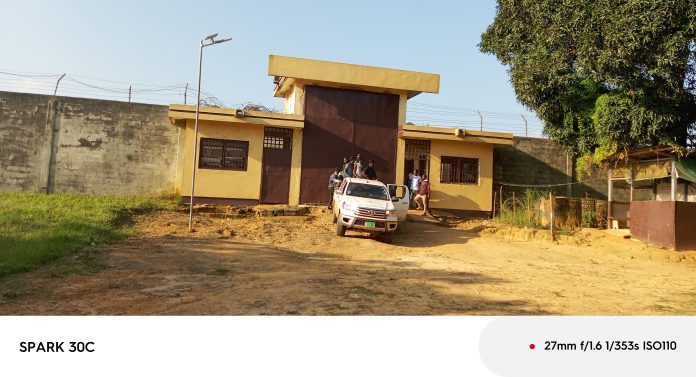Top: An overview of B’hai Jozon, a border town in the Gbarzon District in Grand Gedeh County that separates Liberia and Cote d’Ivoire. The DayLight/Varney Kamara
By Varney Kamara
ZWEDRU – A cocoa lease agreement between Grand Gedeh County and a Burkinabe businessman has been canceled, County Attorney Wilkins Nah announced today on a local radio station.
Nah said he had observed several irregularities in the deal that needed to be corrected, including not getting local people’s consent.
“Upon learning about those things, I immediately called the superintendent and informed him that the Minister of Justice has ordered that we put a halt to everything until we can put in those things that are required,” said Nah.
“The superintendent and I agreed that we needed to correct some procedural errors in the agreement,” Nah added.
Grand Gedeh County administration recently signed the 30-year lease agreement granting Boubou Sebu the right to plant cocoa on 500 acres of land in the B’hai administrative district. The deal is valued at US$600,000.
But local people, prominent citizens and civil society have criticized the deal for lacking consultation and transparency, among others.
The announcement followed Superintendent Alex Grant’s admission to an error in the cocoa agreement with a Burkinabé businessman.
“I regret that the locals were not informed by the district’s authorities. I think is a procedural error,” Grant told a team of reporters in an interview in Zwedru City. “Once they don’t agree, and we agreed, we can both come to the negotiation table and have a conversation around it.”
Grant said he signed the deal because he believed it protected the land from illegal activities and to generate revenue for the county.
The land in question, Grant said, had been conflicted in the past, and that signing a legal agreement was a way of ending that conflict. He thought the district’s commissioner had informed local people of their consent.
The Commissioner of Gbarzon District, Kelvin Kayee, conceded.
“I signed it because I did not want to disrespect my boss,” said Kayee. “After that, I called a big meeting of community people and I apologized to them for not letting them know about it before signing it.”
Excluding the affected communities violates their right to consent, as stipulated in the Land Rights Act of 2018. The law requires consultations and the consent of communities before signing agreements regarding ancestral territories.
The deal sparked outrage, with locals calling for the return of their land.
“I don’t know anything about this agreement. Nobody told me about it, and we only heard this news on the Toe Town radio station the day before yesterday,” said Moses Taryor, Town Chief of B’hai Jozon. “I don’t agree to it today, tomorrow, and forever.”
“The bush is for us. But people from outside are telling us that they sold our bush. We are not happy about it. We will tell the government to return our land,” said Sam Nah, General Town Chief of B’hai Niko Clan.

On Monday, a group of Grand Gedeh citizens had petitioned the southeastern county’s legislative caucus, the Ministry of Internal Affairs, and the Liberia Land Authority for the cancellation of the deal, recommending disciplinary action against Superintendent Grant.
“We can no longer move freely in our forest to hunt, farm, or gather food,” the petition read.
Before that, the Grand Gedeh Bar Association criticized Grant for a lack of transparency, demanding a review of the deal.
“Our goal is not to obstruct development but to ensure that every development is lawful and genuinely beneficial to the people of Grand Gedeh,” Kanio Bai Gbala, President of the association, posted on Facebook.
Liberia Forest Media Watch provided funding for this story. The DayLight maintained editorial independence over its content.





